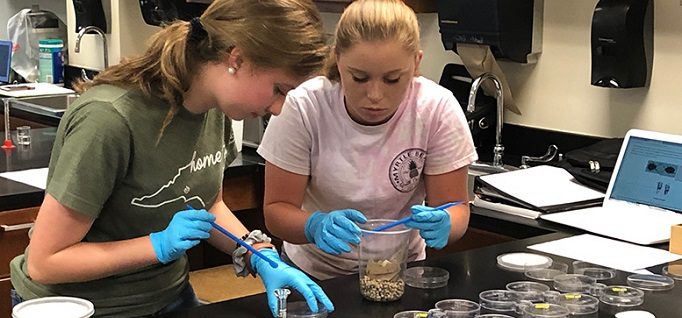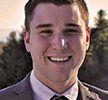Turning queries into published research
By Jonathan Williams
August 21, 2019
Research from community college faculty members has positive outcomes in the classroom.
Research and publishing are no longer the exclusive domain of faculty and students at four-year universities. Just look at the College of Davidson and Davie Counties (DCCC) in North Carolina, which over the past academic year had the research of four instructors from different disciplines published.
Often, ideas for research are rooted in local queries. For example, it was during a DCCC nursing programs advisory council meeting that a nurse educator at a neighboring hospital brought the idea of sepsis as a major health education issue to Susan Bryant, an instructor in the college’s nursing program.
Wanting to dive deeper, Bryant realized such a project would be a win-win for both students and potential employers as those students would be work-ready.
“One of my main interests as a nurse educator is how to improve the way we teach students to recognize clinical deterioration in patients,” Bryant said. “Asking questions about why we are doing something a certain way or what would happen if we changed something about how we teach can be very helpful in improving teaching.”
Her research on collaborating to educate nursing students on sepsis recognition and response was published in Nursing Management, a peer-reviewed monthly publication aimed at educating nurses to become healthcare leaders.
Countering the conventional
Physics faculty member David Herrick was curious about the best angle for launching items to attain the farthest range. Most introductory physics textbooks say horizontal range of a projectile is maximized at 45 degrees, assuming a constant launch speed at all angles. In taking the amount of work the spring must do against the weight of the projectile as it is launched upward, Herrick posited the maximum angle is in actuality less than 45 degrees when solved mathematically.
His research on the topic was published in The Physics Teacher, an academic peer-reviewed journal that equips instructors with the latest topics on the teaching of introductory physics.
“My main motivation was to share the work with other physics teachers and possibly inspire an experimental follow-up on my theoretical result in someone’s lab class,” Herrick said. Since it’s a fairly simple solution to a variation on a fairly standard problem, I thought the physics teaching community might be interested.”
Conducting research connects faculty with their peers and most importantly supports student success, noted Margaret Annunziata, DCCC’s vice president of academic affairs.
“Faculty members conducting and publishing research is not something traditionally seen on the community college level,” she said. “These faculty members exceeded traditional expectations because they love inspiring students and are committed to advancing their respective fields.”
A great student experience
Biology faculty member Joe Felts tapped students to research answers to a real-world problem. He coordinated, planned and taught a Course-based Undergraduate Research Experience (CURE) biology course on the Davidson campus. Students developed their own experiments and ideas to better understand what natural pest control might help save almost 60 percent of crop yields in Africa and South Asia.
“I wanted to focus on a problem our students could help address, one that would gain real research experience and be able to do it on a doable budget,” Felts said.
Students Anna Swing and Shannon Patrick submitted gene sequences to GenBank, a national, open-access repository for gene sequence data for the National Institute of Health. Student data was also featured on Mendeley, an open-access repository that allows scientists to network with communal datasets. CURENet, which is funded through the National Science Foundation, published Felts’ design of the course for other instructors to follow as an example.
The research doesn’t end with the CURE course. The college also received a North Carolina Space grant via the North Carolina Community College System for individual student research. Students Harley Hughes, Molly Clark and Sopheap Thompson completed projects under Felts’ mentorship and presented their findings to the system office.
“Students benefit in seeing that science is a process and not just memorizing facts,” Felts said. “Seeing instructors conduct research at any level and being engaged in the process provides a model for students.”
This article was originally published in CC Daily.



